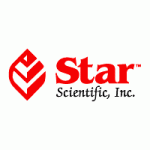Last week, the Virginia Public Access Project held its annual luncheon and invited gubernatorial candidates Kenneth Cuccinelli and Terry McAuliffe to speak. No debate. No questions. Just a few minutes of remarks.
The ballroom of the downtown Richmond Marriott was filled with the usual suspects, including lobbyists, lawyers, corporate officials and politicians. Some reporters were there, but they had been informed that their lunch was not included.
I attended and managed to sneak in a glass of iced tea when I came upon a moment of clarity. VPAP performs a useful service by detailing with sophisticated software and data bases who gives what to whom. I use the services of the non-partisan system all the time and over time, it has become the go-to source in Virginia. There are other services such as the Center for Responsive Politics, but this is the one that drills down in Old Dominion affairs.
Therein lies the problem. VPAP is part of an institution that backs inadvertently benefits from the lax and permissive Virginia-style rules of gift giving to politicians. Gov. Robert McDonnell and Cuccinelli are both caught for not readily disclosing the apparently legal gifts they got from the executive of a suspect company, Star Scientific that is under investigating by the FBI and a local prosecutor.
At the luncheon table sipping my purloined iced tea, I noticed the VPAP program. Its biggest contributors ($10,000 each) are Alpha Natural Resources and Dominion. The former is a Bristol-based coal firm that bought out Massey Energy whose officials are the target of a federal probe that they spent a decade conspiring against mine safety officials and the result was the death of 29 in a blast at Upper Big Branch mine in Montcoal, W.Va., on April 5, 2010, the worst in 40 years.
Alpha says it is trying to correct the defects in the Massey organization in bought but it, too, is a huge player on the political front and has its own agenda, such as keeping alive a destructive type of mining called mountaintop removal. Dominion has a highly sophisticated advocacy operation since its survival depends on regulation. Other big-time VPAP contributors are car dealers, tobacco giant Altria, Comcast, lobbying law firm McGuireWoods, health groups, a few other utilities, and so on. Even NOVA real estate John “Til” Hazel is on the list, but much farther down.
I really didn’t see any citizen groups or anyone that wasn’t bound to benefit by giving legal gifts of jumbo shrimp, lakeside vacations or money to someone in a position of power in the state.
The problem, therefore, isn’t the fact that anything is illegal, but just about everything is and it is peculiar to Virginia. I was amused to read New York Times columnist Gail Collins write this morning about Virginia’s anything-goes gift policies:
“Under Virginia’s ethics laws the governor can accept anything – house, car private jet, former Soviet republic – as long as he puts it in the proper form.”
Ms. Collins details the familiar Giftgate issues, stating:
“Looks like an investigation for Attorney General Kenneth Cuccinelli. Except — whoops – it turned out that Cuccinelli had also taken gifts from the same business man, some of which he, too, had failed to report.”
She adds: “ Perhaps unreported freebies will be a big campaign issue. Although in a more perfect world, voters might focus on the attorney general’s two-year investigation of a University of Virginia scientist for the crime of believing in global warming.”
All good points from someone far enough from Virginia and its entrenched gift-giving structure that is designed precisely to enhance the influence of the rich and elite while pretending to let all Virginians now what is going on.
It is time for a basic rethink and restructure.



